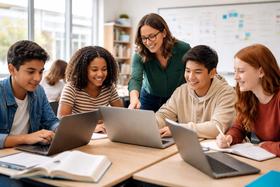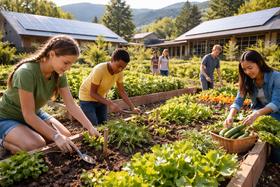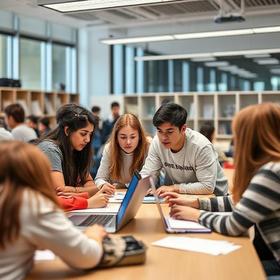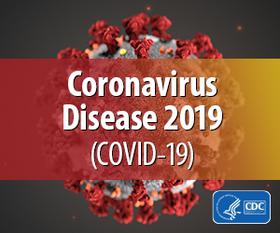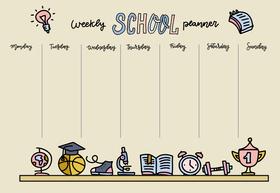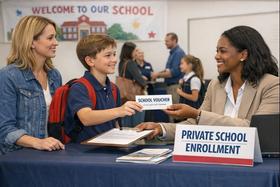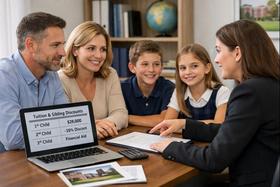When it comes to schooling our children and grandchildren, we parents and grandparents have faced unprecedented challenges during the pandemic. Deciding whether to send our kids to school or keep them home has been something we have wrestled with and, indeed, still wrestle with because the number of cases of COVID-19 varies so much from one location to another. As we all quickly discovered, there is no "one size fits all" solution. The one bright spot in all the pandemic's darkness has been how nimbly most independent schools have responded to the challenges of keeping their schools open. I attribute that to the thin management layers most private schools have. That allows those in charge to make informed decisions quickly. Standing behind the school's management team is a dedicated group of trustees. These experienced, generous women and men love their school. Their counsel and their generous financial support make the way forward during the pandemic so much easier. These trustees have faced many challenges in their professional lives. They know how to make hard choices and execute plans to implement those choices.
Having sketched out a backdrop against which most private schools have dealt with the pandemic, let's look at some of the items you should have on your personal checklist every day.
Wearing masks
When the pandemic began, I thought that wearing a mask was simple. You put on a disposable or a cloth mask, and that was it. A year later, we now know that you need to wear a mask that keeps your droplets in and other droplets out. Masks with several layers are best. KN95 masks are touted as very effective. As recently as February 13, 2021, the C.D.C. recommended that we wear two masks whenever we are near others who are not part of the group that lives with us. The solution for our children? Buy dozens of masks. Wash them carefully regularly. Monitor your children's understanding of how and when to wear them. As Dr. Anthony Fauci says, "Wear a mask!"
This video shows how to wear a mask in school.
Social distancing
We all are more than familiar with the need for social distancing as one way to mitigate the spread of the coronavirus. That works when we are standing in line at the supermarket cash register or waiting in a doctor's office. But what about classrooms? Most independent schools have small class sizes, making social distancing in the classroom a little easier.
Look at the photos in Monic Humphries' article in Insider. Plexiglass partitions seem to be an effective way of separating students in middle and high school. The downside, of course, is that these plexiglass partitions are surfaces that need to be cleaned regularly.
Steven Herr offers 6 Classroom Layouts to Maintain Social Distancing. Most of these will work nicely in the small class environment of most independent schools.
Ventilation
This is what the World Health Organization has to say about ventilating classrooms: "Yes, ensure adequate ventilation and increase total airflow supply to occupied spaces, if possible. Clean, natural ventilation (i.e., opening windows) should be used inside buildings where possible, without re-circulating the air. If heating, ventilation and air conditioning systems are used they should be regularly inspected, maintained and cleaned. Rigorous standards for installation, maintenance and filtration are essential to make sure they are effective and safe. Consider running the systems at maximum outside airflow for two hours before and after times when the building is occupied, according to the manufacturer’s recommendations."
Furthermore, regarding HVAC filters, the Environmental Protection Agency states: "The HVAC systems of large buildings typically filter air before it is distributed throughout a building, so consider upgrading HVAC filters as appropriate for your specific building and HVAC system (consult an HVAC professional). The variety and complexity of HVAC systems in large buildings requires professional interpretation of technical guidelines, such as those provided by ASHRAE and CDC. EPA, ASHRAE and CDC recommend upgrading air filters to the highest efficiency possible that is compatible with the system and checking the filter fit to minimize filter air bypass."
About air cleaners, the E.P.A. further states: "Consider using portable air cleaners to supplement increased HVAC system ventilation and filtration, especially in areas where adequate ventilation is difficult to achieve. Directing the airflow so that it does not blow directly from one person to another reduces the potential spread of droplets that may contain infectious viruses."
Since air cleaners and HVAC filters are not readily seen by the general public, don't hesitate to ask the school office about what air cleaning, HVAC filter, and ventilation measure are in place.
This video explains the importance of ventilation in schools.
Sanitizing
Obviously, the school administrations are paying much more attention to cleaning surfaces that are touched or handled by members of the school community. Once again, the C.D.C. offers guidance on the subject in a toolkit entitled Cleaning, Disinfection, and Hand Hygiene in Schools – a Toolkit for School Administrators. If your school has not already explained its deep cleaning measures, ask about them. Know what they entail.
This video explains what's involved with sanitizing schools.
Teaching
Depending on your state and local government's orders, your school may use in-person instruction or online teaching or both. You have probably heard discouraging stories about online instruction. However, most private school teachers are skilled and experienced at teaching online. In-person instruction is their first option. But, when the situation demands it, and the school switches to online teaching, don't worry. Your children will receive the same high-quality teaching you have come to expect in their classrooms.
Parental responsibilities
Parents must learn about and understand all the mitigation measures their schools have put into effect. Take time to have discussions with your children. Don't criticize any school instructions in front of your children. If you have concerns or disagree with anything the school requires, speak to the school. Get answers from the source, not from friends or the local gossip machine. Answer your children's questions honestly. Show them how to counter their classmates' criticisms. Remind them that failure to follow their school's instructions could result in disciplinary measures up to and including expulsion. Furthermore, schools have a tendency not to invite students from difficult families back for the next academic year.
Stay safe.
Questions? Contact us on Facebook. @privateschoolreview


